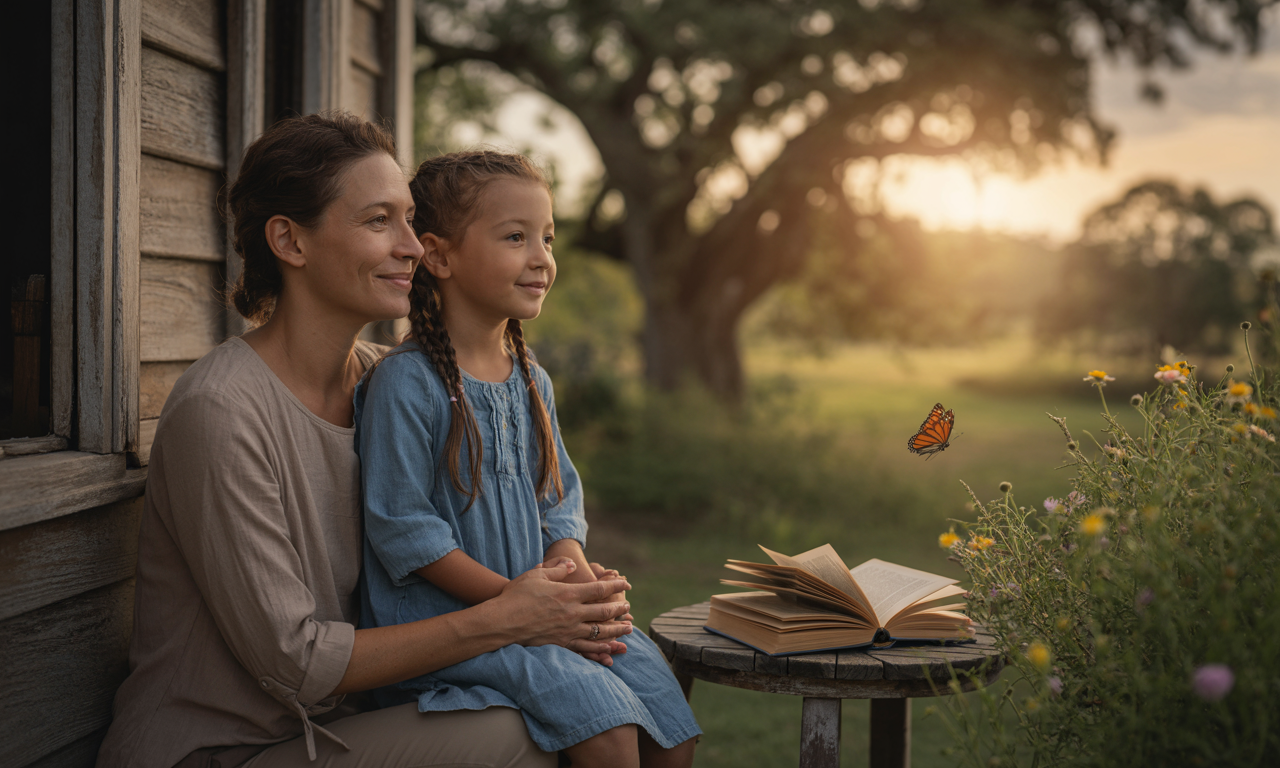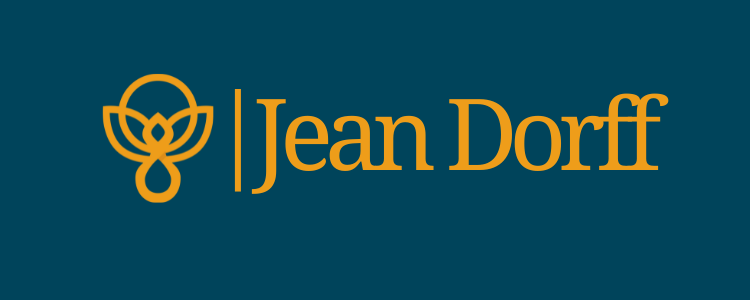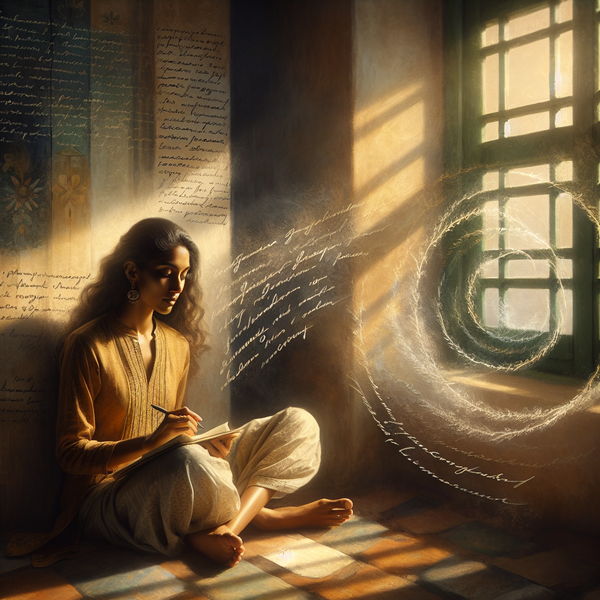The Generation That Chose to Break the Chain: A Soft Revolution of Healing

Something ancient broke inside me the day I realized abuse wasn't an isolated incident.
It was an unbroken chain passing through generations. A living thing that burned in my chest as I suddenly saw it everywhere.
Not just the visible harm, but the patterns. The emotional disconnection. The shame. The inherited belief that pain was something to pass on, not heal.
That moment changed everything.
It turned healing from personal work into sacred rebellion. A conscious refusal to carry forward what was never mine, to begin with.
The shift wasn't just intellectual. It was cellular. Like my body said, "This ends with me."
The Weight of Allowing
Here's what I learned: it wasn't just that abuse happened. It was that we allowed it to keep happening.
Generation after generation.
A society that allows abuse doesn't always look violent on the surface. It looks like silence masquerading as neutrality. Systems that protect reputations over children. Blaming victims for speaking too late, too loudly, too emotionally.
It looks like underfunded support services and a cultural obsession with "not making a scene."
The numbers tell the story we don't want to see. In 2021, 588,229 children were victims of abuse. Most devastating? 76.8% of that harm came from parents themselves, underscoring that most abuse happens not in dark alleys, but in the supposed safety of home.
This isn't random violence. It's systemic transmission.
But what if we stopped allowing it?
If allowing harm has been our unconscious inheritance, then prevention must become our conscious offering.
The Courage of Everyday Prevention
Prevention isn't heroic. It's presence.
In a parent, brave prevention looks like pausing before reacting. Choosing connection over control. Apologizing when you mess up. Listening when your child says something uncomfortable and staying open instead of shutting down.
In a teacher, courage might look like creating classrooms where emotions are named and honored. Noticing withdrawal and gently asking questions. Seeing the story behind the behavior.
In a neighbor, it means checking in when something feels off. Trusting instincts. Being someone a child knows they can turn to without shame.
This is how culture changes. Not all at once. Not only through outrage.
But through millions of moments where we stay soft and determined.
Softness as Rebellion
There was a moment when someone I loved confided about childhood abuse. My first impulse was to armor up. Get angry. Get reactive. Find someone to blame.
That's what the world teaches us: protect by hardening.
But I took a breath. I remembered what I needed when I first shared my story. Not solutions. Not rage. Just presence. Someone to stay soft with me in a moment that felt unbearable.
So I chose softness. Not passivity. Presence.
I listened. I didn't rush to fix it. I held space and believed them and let my heart stay open even when it hurt.
That moment taught me something profound: breaking cycles don't always look like action. It often begins with reception. With softness that refuses to turn away.
The softness that breaks cycles isn't naive. It's fierce. It's rooted. It's the kind of openness that comes from knowing exactly how much harm silence can do.
It's the softness of boundaries, clearly spoken. The softness of saying "I believe you" even when the story is hard to hold. The softness of staying present in discomfort, not to bypass truth, but to transform it.
Softness, in this world, is rebellion.
How Healing Lives in the Body
The body always tells the story, even when the mouth can't.
When I work with people breaking generational cycles, what I see first isn't their words. It's their posture. Their breath. Their muscle tension. The way their bodies anticipate danger, even in safe rooms.
Because trauma doesn't just live in memory. It lives in the nervous system. In the hypervigilance, the shutdown, the frozen places where aliveness got interrupted.
But here's the astonishing part: the body also holds the map to healing.
Through connection. Real, regulated, attuned connection. When someone experiences consistent, compassionate presence, when their story is met without judgment, when their "no" is honored, something shifts.
The nervous system begins to learn: It's safe to be here now. I don't have to brace. I can rest. I can feel it. I can connect.
Research shows this is how transitional characters emerge. Individuals who, in a single generation, change the entire course of a lineage by metabolizing poison and refusing to pass it on.
Every small repair in the nervous system is a radical act. Because that person won't pass on what they've metabolized. Their children, students, and communities will feel that regulation, even if trauma is never spoken.
Healing isn't just in what we know. It's in how we show up. How we breathe. How we stay.
The Brilliance Safety Grows
When I imagine the first generation to grow up truly free from abuse, I don't just see safer homes. I see a different world.
A world where children don't scan rooms for danger. Where no one learns to dissociate just to survive. Where the nervous system develops in peace, not shaped by threat.
When safety is the baseline, not the exception, what emerges isn't just stability. It's capacity.
Emotional capacity. Creative capacity. Relational capacity.
When the brain doesn't have to prioritize survival, it has space for imagination. For innovation. For connection that isn't transactional or guarded, but generous and mutual.
The Harvard Nurses' Health Study revealed how trauma passes through generations. Depression rates were 1.7 times higher, chronic depression 2.5 times higher, among children of abuse survivors.
But if trauma can be transmitted, so can healing.
Children raised without internalized fear don't replicate dominance to feel safe. They don't need to control others to protect themselves. They know how to listen. How to repair. How to care without losing themselves.
What becomes possible in a world like that?
Art we can't yet conceive. Solutions to crises that overwhelm us now. Workplaces built around dignity, not extraction. Governments that prioritize healing over power.
Safety doesn't just prevent harm. It grows brilliantly.
And we have no idea yet what that brilliance could build.
Starting Where You Are
For those reading this who feel inspired and overwhelmed, who carry their trauma or worry about getting it wrong as parents: you're not alone. And you're not too late.
Feeling overwhelmed by this vision isn't a failure. It's a sign that your heart is alive. That you care. And that caring is already part of the healing.
Your healing is prevention. Every time you tend to your nervous system, every time you break a silence, every time you offer yourself gentleness instead of judgment, you're doing cycle-breaking work.
You don't have to be perfect. You just have to start where you are.
The first step? Presence.
Breathe. Pause. Notice your own body before reacting. Practice repair. Let your children see that adults can feel big feelings and still choose love.
Let them see you apologize. Let them see you learn.
That's how cycles change. Not with massive, heroic gestures, but with consistent, imperfect love. With micro-moments of awareness. With the courage to stay curious instead of critical.
Every one of those moments matters.
When you show up for your healing, or your child's, or your student's, even shakily, you become a living example of something they may have never seen before: a world where pain doesn't get passed on.
A world where softness is safe. A world where safety grows brilliantly.
That's how we start. Not by changing the whole world all at once, but by creating one space where it begins to feel different.
And that space might be you.
The Legacy We Choose
I believe this moment in history will be remembered as a turning point. The first big step in human evolution in a very long time.
Not because of what we built, but because of what we refused to keep passing on.
For too long, we mistook progress for technology. But no amount of innovation can save us if we can't keep our children safe. No society can thrive when its homes, where love is meant to live, are where most abuse still happens.
We're beginning to see: that there is only one globe. Only one future. And eternity isn't made in monuments or markets. It's made through the lives of the generations to come.
What I hope they'll say about us is: "They were the ones who finally made it safe to grow up. And from that safety, everything changed."
In that kind of world, children would no longer waste their brilliance surviving. They would be free to evolve emotionally, relationally, and creatively into something far beyond anything we can imagine.
Not just as individuals, but as a collective: equal, resourced, and deeply safe.
The real legacy of healing isn't the stories we tell. It's the harm we chose not to repeat. The silence we dared to break. The softness we practiced, even when the world told us to be hard.
It is possible. And it doesn't all rest on your shoulders. But it can begin with you.
Not because you have all the answers. Not because you're unbreakable. But because you're willing. Willing to look, to feel, to try. Willing to choose awareness over avoidance. Willing to live in a world that tells us to protect instead.
That willingness changes culture. That willingness interrupts the pattern. That willingness is what a future generation might thank you for, even if they never know your name.
Every small act of tenderness you choose, toward yourself and others, becomes part of the larger healing.
You don't have to fix everything. Just don't look away. Just keep softening where others have hardened. Keep believing in a world where safety is not a luxury, but a birthright.
That world is possible. That world is waiting.
And you're already part of building it.
Reflect With Me:
- Where in your life are you already interrupting the cycle, even if you don’t have words for it?
- What does “safety” mean in your body—and what helps you return to it?
- What small act of softness could you choose today, even if the world tells you to harden?
We don’t just tell stories. We reclaim them. Together.

